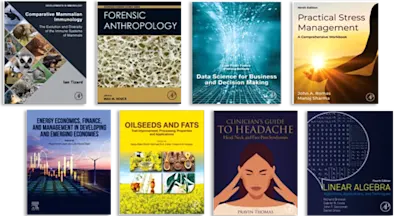
Modern Dressing and Grinding Technologies, Volume 1
Principles, Tools, and Process Fluids
- 1st Edition - June 19, 2025
- Imprint: Elsevier
- Author: Bahman Azarhoushang
- Language: English
- Paperback ISBN:9 7 8 - 0 - 4 4 3 - 1 3 9 3 3 - 8
- eBook ISBN:9 7 8 - 0 - 4 4 3 - 1 3 9 3 4 - 5
Modern Dressing and Grinding Technologies, Volume 1: Principles, Tools, and Process Fluids provides a thorough and practical exploration of the principles, processes, and tools… Read more
Purchase options

Modern Dressing and Grinding Technologies, Volume 1: Principles, Tools, and Process Fluids provides a thorough and practical exploration of the principles, processes, and tools fundamental to modern dressing and grinding operations. It highlights advanced grinding and dressing tool design, the use of process fluids and nozzles, and how these elements impact process efficiency. This volume also addresses tool wear mechanisms, thermal effects and their quantification, the grindability of diverse materials, and the resulting surface and subsurface quality of workpieces. Integrating foundational theories with practical applications and case studies, this handbook serves as a valuable resource for advancing both academic and industrial understanding. Key areas of focus include the parameters and correlations governing dressing and grinding processes, the properties and applications of abrasive materials, and the design and manufacturing of conventional and superabrasive tools.
- Examines advanced dressing and grinding techniques, including material removal mechanisms, tool wear dynamics, cutting forces, grindability, and the surface and subsurface quality of workpieces
- Details the design, fabrication, and industrial applications of both conventional and superabrasive tools, with a focus on their wear mechanisms and performance in various processes
- Explores the types and compositions of cooling lubricants, nozzle designs, and their influence on process efficiency, as well as techniques for maintaining and cleaning tools with process fluids
- Features practical applications and case studies, providing clear selection criteria for dressing and grinding tools, along with practical solutions to address common operational challenges.
Researchers and professional engineers in the fields of industrial engineering, mechanical engineering, precision machining, and abrasive machining, Graduate and advanced undergraduate students
1. Principles of dressing processes
2. Principles of grinding processes
3. Abrasives and Grinding tools
4. Dressing tools
5. Tool wear in dressing and grinding
6. Dressing processes (Mechanical and non-mechanical dressing processes)
7. Grinding processes and Machines
8. Grinding Burn
9. Grinding processes monitoring and optimization
10. Grindability of Materials
11. Workpiece surface and subsurface quality
12. Cooling lubricants and nozzles
2. Principles of grinding processes
3. Abrasives and Grinding tools
4. Dressing tools
5. Tool wear in dressing and grinding
6. Dressing processes (Mechanical and non-mechanical dressing processes)
7. Grinding processes and Machines
8. Grinding Burn
9. Grinding processes monitoring and optimization
10. Grindability of Materials
11. Workpiece surface and subsurface quality
12. Cooling lubricants and nozzles
- Edition: 1
- Published: June 19, 2025
- Imprint: Elsevier
- Language: English
BA
Bahman Azarhoushang
Bahman Azarhoushang is a professor of mechanical and medical engineering at Furtwangen University in Germany, where he leads the Institute for Advanced Manufacturing (KSF). Leveraging state-of-the-art CNC machinery and advanced metrology tools, he has authored more than 300 publications, including more than 100 articles in peer-reviewed journals — and holds several european and german patents in grinding and dressing technologies. Professor Azarhoushang has contributed to several books and is a coauthor of the third edition of Tribology and Fundamentals of Abrasive Machining Processes (Elsevier). In addition to his academic contributions, Professor Azarhoushang serves as a senior advisor to European companies in the field of precision machining and leads a grinding working group in southern Germany comprised of 30 international member companies. His extensive academic background combined with active industrial engagement uniquely positions him as a pivotal contributor to the advancement of modern dressing and grinding technologies. He specializes in conditioning (both mechanical and non-mechanical dressing), grinding, precision machining, innovative tooling, laser surface structuring, and process optimisation, while also teaching courses in manufacturing engineering, machine tools, production metrology, and precision manufacturing.
Affiliations and expertise
Professor of Mechanical and Medical Engineering, Furtwangen University, Furtwangen im Schwarzwald, Germany